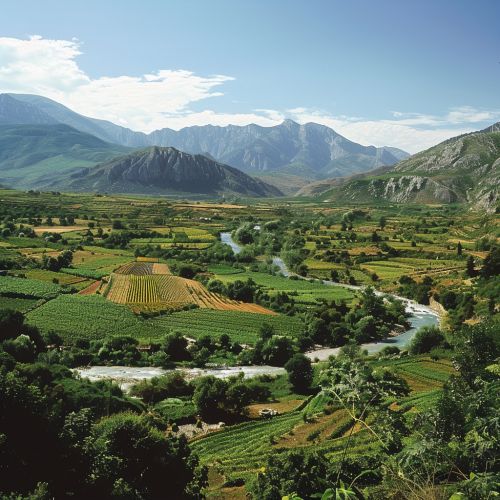Albania
Geography
Albania is situated in the southwestern region of the Balkan Peninsula. The country is bordered by Montenegro to the northwest, Kosovo to the northeast, North Macedonia to the east, and Greece to the south and southeast. It has a coastline on the Adriatic Sea to the west, and on the Ionian Sea to the southwest. The country's total area is approximately 28,748 square kilometers.


History
The history of Albania forms a part of the broader history of Europe. The country's history is marked by the influence of various cultures, civilizations, and empires that have left their mark on the region. The earliest signs of human presence in Albania, dating back to the Middle Paleolithic and Upper Paleolithic eras, were found in the village of Xarrë, close to Sarandë and Dajti near Tiranë.
Politics
Albania is a parliamentary constitutional republic and sovereign state whose politics operate under a framework laid out in the constitution wherein the president functions as the head of state and the prime minister as the head of government.
Economy
The economy of Albania went through a process of transition from a centralized economy to a market-based economy on the principles of the free market. Albania is a lower-middle-income country and a member of the North Atlantic Treaty Organization (NATO), World Bank, International Monetary Fund, Organisation for Security and Cooperation in Europe, and Organization of the Black Sea Economic Cooperation.
Culture
The culture of Albania has been shaped by the geography and history of Albania. It shares many similarities with other Balkan countries, yet it has distinct cultural traits. The Albanian culture has been influenced by the Ancient Greeks, Romans, Byzantines, Venetians, Ottomans, and more recently, the Italians and the Communists.
